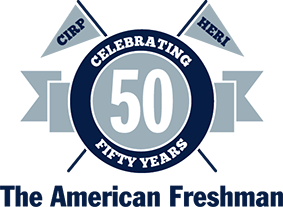
Improve Practice. We will identify general principles for good practice in undergraduate science education based on empirical findings that show promise in improving the rate of BBS degree completion and advancement into graduate studies and research careers, particularly for URMs.
Produce Knowledge about Distinct Student Pathways. We will identify the paths that students take immediately after college graduation, and factors that lead to:
- Application and enrollment in graduate school immediately after graduation and up to three years after bachelor’s degree attainment
- Participation in post-baccalaureate research programs
- Workforce entry
Move Beyond Student Predisposition to Examine Contexts for Talent Development. We seek to understand how college experiences influence the paths that URM students take as compared to their White and Asian American counterparts. Controlling for student background and predispositions, the project will address experiences of diversity and issues that impact academic and social engagement in college contexts where URMs are few in number (predominantly white institutions) and on campuses where there are large numbers of peers from the same racial/ethnic group (minority-serving institutions). Further emphasis is also placed on normative contexts that lead to STEM and behavioral science research careers for different racial and ethnic groups.
Identify Programs that Result in Desired Outcomes Across Institutional Types. We seek to evaluate the unique contributions of NIH/NSF-sponsored undergraduate programs (e.g, MARC, MBRS, RISE, REU), along with other undergraduate experiences, on the career paths of student participants. Using advanced statistical techniques, emphasis will be placed on the role of formal programs, NIH/NSF support, and the experiences of URMs across colleges and universities that differ by institutional type (e.g. research, liberal arts, minority-serving), existence of formal programs, and NIH/NSF support, to demonstrate efficacy over and above informal modes of student involvement that lead to retention in the major, degree attainment, and application and enrollment in graduate school.
Examine the Graduate School Experiences of URM STEM and Behavioral Science Students. We seek to administer a comprehensive graduate student survey that will address: choice of graduate school, academic socialization and interaction with faculty/mentors, sense of community, diversity experiences, research experience and exposure, progress and performance, affordability/financing, and career plans. The graduate school experiences of URM STEM and behavioral science students will be examined in comparison with those of other graduate students to determine their unique experiences, how the undergraduate years prepared them, and factors that sustain an interest in pursuing a research career in academia or industry.



 POST-BACCALAUREATE EXPERIENCES, SUCCESS, & TRANSITION
POST-BACCALAUREATE EXPERIENCES, SUCCESS, & TRANSITION
